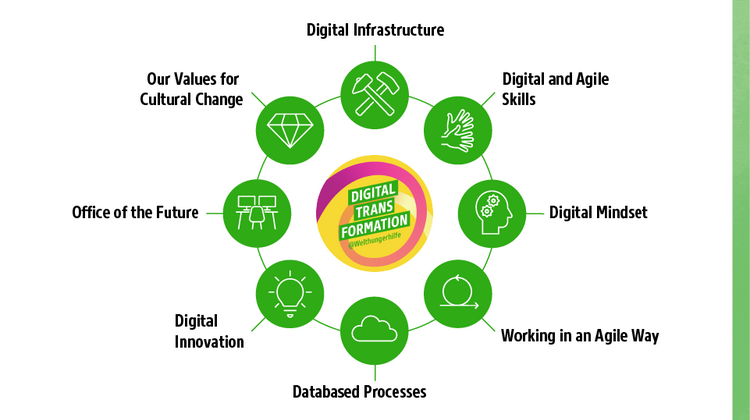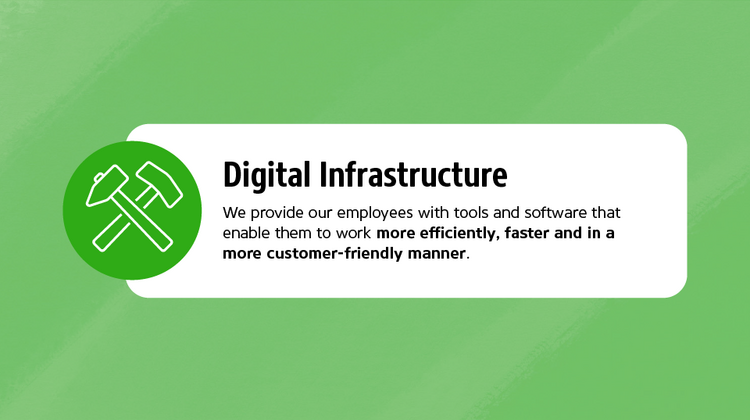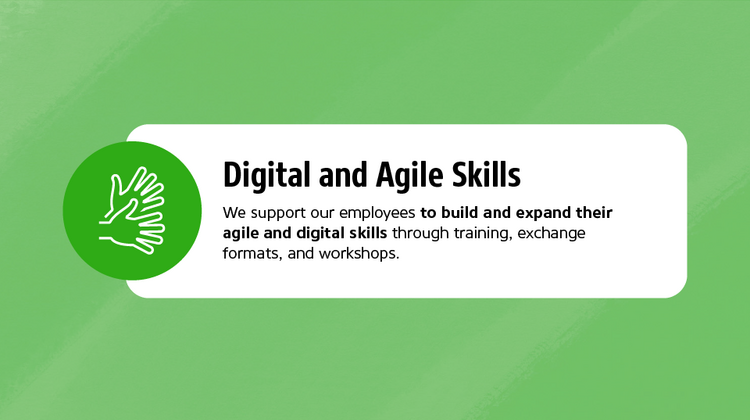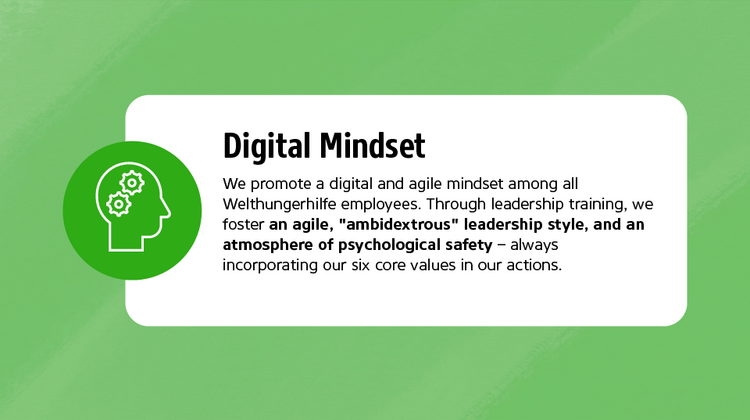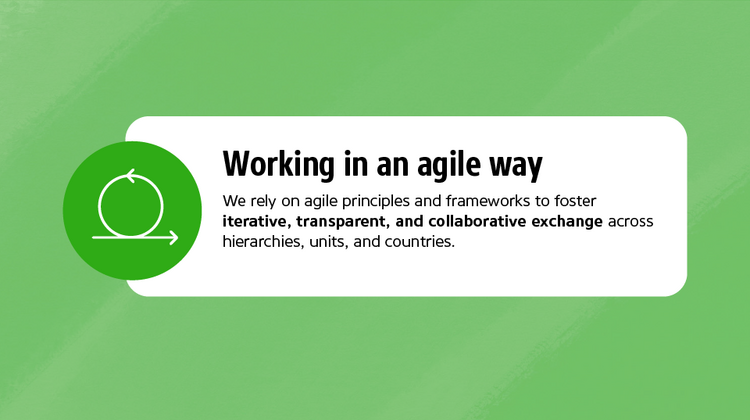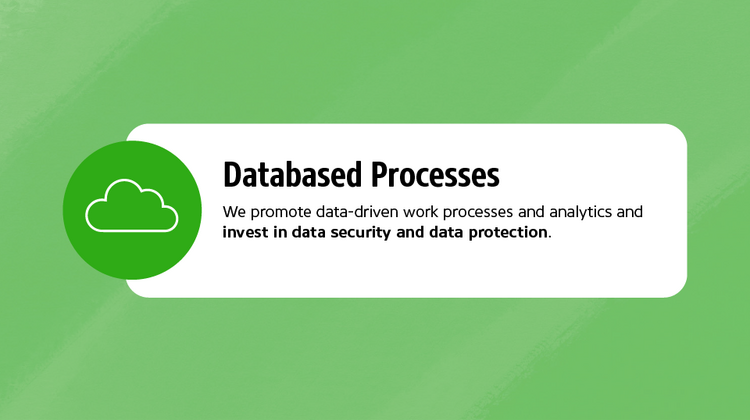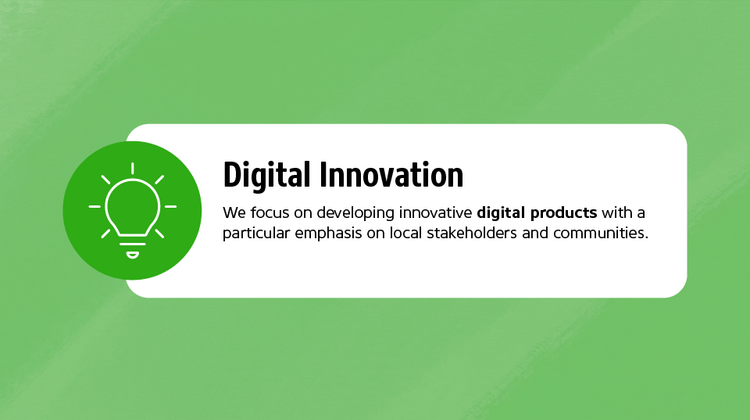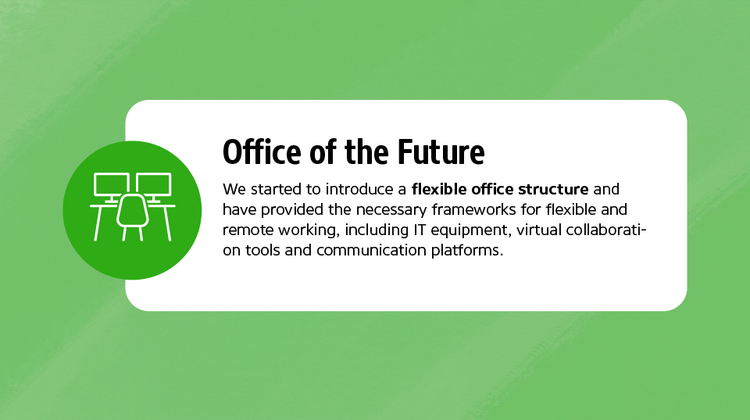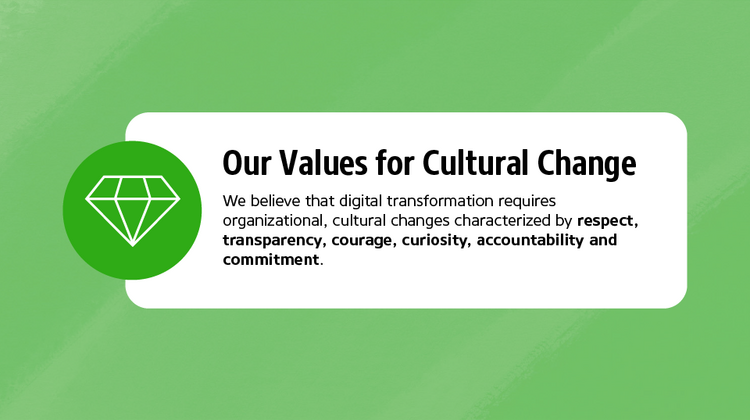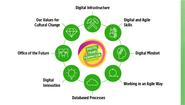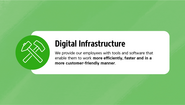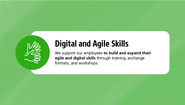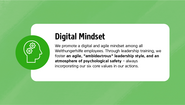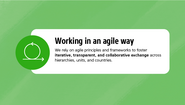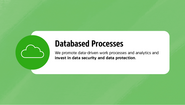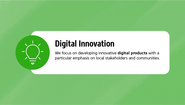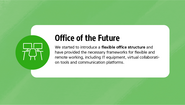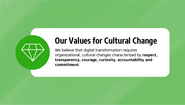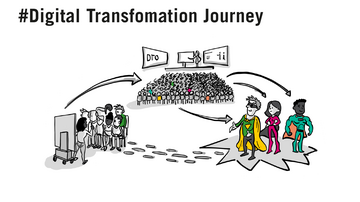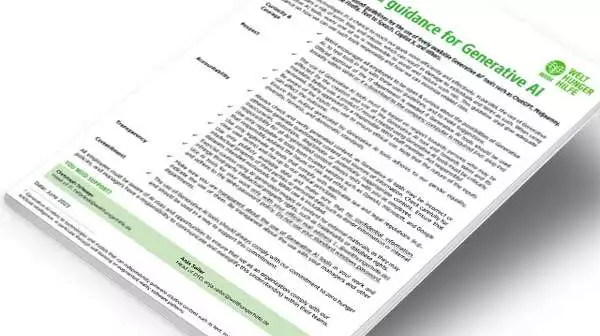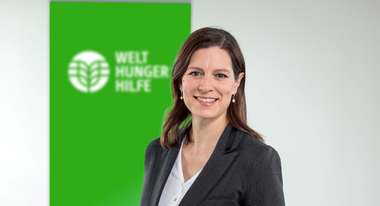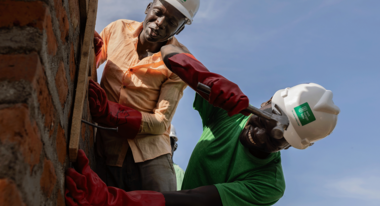Our guide to using AI tools at WHH.
Digital Transformation at Welthungerhilfe
The Digital Transformation Office supports the organization and its employees as they move into a digital, innovative and agile future.
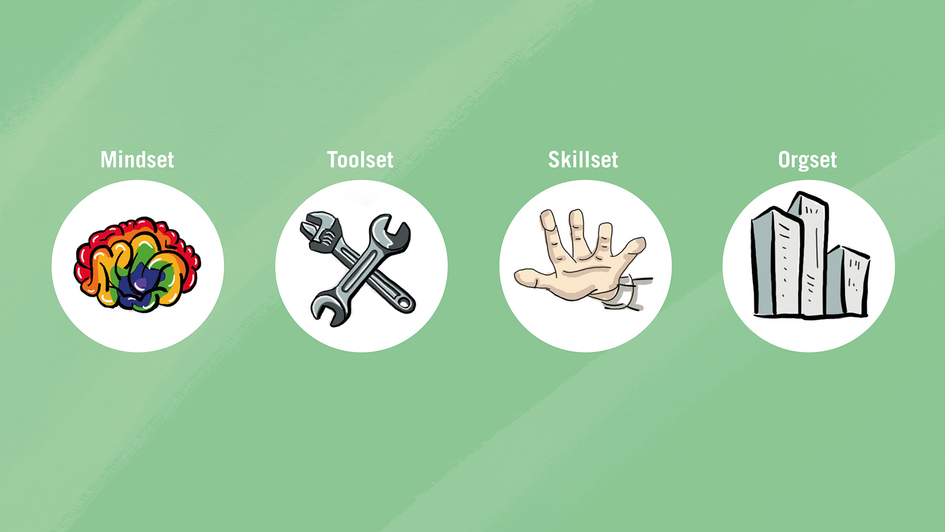
Digital and cultural change have an important place in society today. At Welthungerhilfe (WHH), we don't just want to adapt to this change, we want to actively shape it and leverage it to achieve our goal of Zero Hunger. For this reason, we have set up the Digital Transformation Office, which supports the organization and its employees on the path to a digital, innovative, and agile future. Digital tools and solutions have a reciprocal effect on the development of culture. Therefore, we have taken a holistic approach to their introduction.
We envision Welthungerhilfe as an agile and inspiring organization that makes maximum use of digitalization and innovation across all areas.
– from the current Welthungerhilfe strategyWhat we do:
We provide WHH employees with digital tools that enable them to work more quickly and efficiently. Genuine digital transformation, however, is only possible in combination with cultural change. Therefore, in addition to introducing a digital infrastructure, we also assist employees to understand, manage and shape the change in the organization.
Driving cultural change within Welthungerhilfe.
The digital transformation requires an internal cultural change characterized by respect, transparency, courage, curiosity, accountability, and commitment. The prerequisite for a digital future is understanding the cultural changes that will come with it, and how we can actively shape this transformation. These two examples provide an insight into how we are driving cultural change within Welthungerhilfe:
The Digital Transformation Journey: the digitization process for all employees
To assist WHH to become an "agile and inspiring organization," the Digital Transformation Office has launched the Digital Transformation Journey. This journey is designed to help Welthungerhilfe employees work together to experience, and shape change within the organization. The focus is not only on the use of digital tools, but also on the mindset and employees’ ways of working. The journey begins with a management training session, through which topics such as agile ways of working, psychological safety, or ambidextrous leadership are explained and discussed. The next step is to roll out the Digital Transformation Journey throughout the organization via e-learning covering agile and cultural topics. Building on this theoretical foundation, we also offer additional platforms for in-depth exchange and collaboration:
- Training sessions, where employees can learn how to most effectively use collaboration tools and frameworks.
- Exchange spaces, such as Failure Hours, where we share mistakes and lessons learned, or #nofiter sessions, where projects or individuals can present their work to their colleagues and clarify open questions or uncertainties.
- Peer-to-peer support, e.g., CultureClub sessions, where employees with learning interests or questions related to agility, collaboration or digital solutions can contact the Digital Transformation Office and receive support or feedback as needed.
New ways of working, new office structures
Developments such as working from home, remote working, and an increased use of digital collaboration tools have changed the way we work and communicate. Since an important characteristic of an agile organization is to rethink and challenge existing concepts, we asked ourselves the question: Given the changing work environment, is there a work structure that fits better with the shifting needs and requirements of our employees and the organization?
In search of a sustainable and collaborative solution, WHH decided to try out a new flexible office structure. Three teams volunteered to participate in the so-called "FlexDesk pilot project". In these teams, all employees – including the respective team leaders – relinquished their personal office and joined the pilot project. In the newly appointed FlexDesk area, some changes were made to facilitate flexible working:
- Workstations: All workstations were equipped with similar IT devices and furniture.
- Meeting rooms: Several offices were converted into meeting and creative rooms.
- Seat reservation: All participants can book their workstation via an integrated seating app.
- Storage space for personal items: The area includes lockers and shelves for storing personal items.
In this new system, tables are re-assigned every day. This not only helps to save space, energy, and costs, but also facilitates more exchange between the different units.
To help employees adapt to these new ways of working, the Digital Transformation Office also offers training on various online collaboration tools and regularly gathers feedback from pilot participants to improve collaboration in the new office structure.
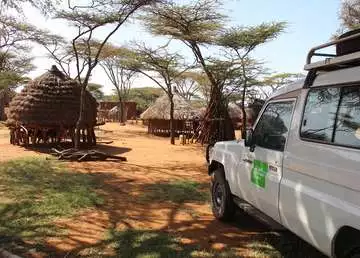
New digital innovations and projects:
At the same time, the Digital Transformation Office is focusing on developing new digital projects that will make WHH’s work more effective and efficient. For example, a standardized digital tool will simplify the management of WHH motor vehicles. We also want to implement data-based work processes as part of an internal project.
We are working on many other projects in addition to those mentioned above, such as digital incoming invoice processing, human resources software for our country offices, data-based personalized marketing tools, digital personnel file management, and digital travel management software.
Central fleet management
Currently, the management of WHH’s motor vehicles is decentralized across our 36 project countries. With the new tool, we aim to get a global overview of the fleet data to reduce costs, make the fleet more sustainable and increase the safety of our employees.
Data-based work processes
As part of the internal "Making Sense of Data" project, we have created a systematic framework that enables data-driven management decisions.
Our focus is on:
- Strengthening WHH’s data culture
- Optimized tools and systems for data collection, processing, and analysis
- Development of prototypes for the visualization of data in dashboards, including an automated business intelligence infrastructure with cloud data warehouse
- Introduction of new processes, including roles and responsibilities for data-driven discussions and coherent governance approaches
Our use of artificial intelligence
We see new technologies as an opportunity to achieve our goals more efficiently and effectively. At the same time, the use of generative AI tools carries risks of error, bias, and misuse that can lead to harm to both individuals and WHH as a whole.
Our guide, "AI at Welthungerhilfe: Value based guidance for Generative AI," is intended to provide instructions on how we can use these tools responsibly and minimize the associated risks.





